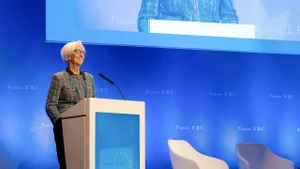Preliminary statistics just released show that, with a decline of 0.2%, Europe's largest economy continued to fall into recession in 2024. Previously, in 2023, the German economy fell by 0.3%. Preliminary statistics for the fourth quarter of 2024 also showed that the economy fell by 0.1% compared to the third quarter. Germany has been struggling with a cost-of-living crisis for the past few years, partly due to rising energy prices related to the conflict in Ukraine.
Once a major buyer of cheap Russian gas, Germany has had to look for new sources of supply after Moscow cut off its energy supplies.
The conflict, along with climate change and other factors in the international supply chain, have also contributed towards rising inflation and increased costs for essential goods such as groceries and toiletries. While inflation has become a global phenomenon, it has hit Germany particularly hard because its grocery prices had been relatively low in previous years.
In addition, traditionally an export-oriented economy, falling demand for German products has been a key factor in the economic impact. A flood of cheap imported electric vehicles has reduced demand for German cars. The German auto industry, once a symbol of innovation and quality, had a difficult 2024 with a sharp decline in battery electric vehicle (BEV) registrations, down 27.4% compared to 2023.
Facing increasingly severe difficulties due to the prolonged impact of the economic crisis, the monthly index of the business climate in the German auto industry fell to minus 34.7 points in December 2024, from minus 32.4 points in November. The main reasons for the weak business situation were a lack of orders and sluggish business activities abroad. In addition, Germany is facing aging infrastructure and sluggish competitiveness in industry and technology.
The German economy is facing a number of headwinds, including sluggish growth, financial uncertainty, geopolitical risks, a weak auto industry, and high energy costs.
Inflation remains a drag on German economic growth. After falling below the European Central Bank's 2% target, German inflation has picked up in the past three months. Preliminary data from Destatis showed that the country's inflation in December 2024 rose more than expected while consumer prices rose sharply at the end of the year.
Annual inflation in Europe's largest economy in December 2024 was 2.6%, up from 2.2% in November 2024, which is also higher than the 2.4% forecast by analysts at financial data firm FactSet. ING bank analyst Carsten Brzeski predicts that inflation will continue to accelerate before slowing this year. The increase will be driven largely by energy prices. However, continued wage growth and falling energy prices could keep inflation relatively high for some time.
The German economy is facing a number of headwinds, including sluggish growth, financial uncertainty, geopolitical risks, a weak auto industry, and high energy costs. The economy remains in a difficult situation, which is negatively affecting the job market and exacerbating challenges for businesses.
According to research by the Halle Institute of Economics (IWH), in the fourth quarter of 2024, Germany recorded a record number of bankruptcies since 2009 due to high interest rates and costs. Specifically, a total of 4,215 companies went bankrupt in the quarter, affecting nearly 38,000 jobs, the highest level since the financial crisis in mid-2009. This figure increased by 36% compared to the same period in 2023.
Meanwhile, the dispute over the so-called “debt brake”, a debt control mechanism that the government is allowed to use, led to the collapse of Chancellor Olaf Scholz’s ruling coalition last year, forcing the government to hold early elections.
Given the gloomy outlook and persistent difficulties and structural problems, Bundesbank has sharply cut its economic growth forecast for the country in 2025 and 2026. It is currently forecast that Germany’s GDP growth will reach only 0.2% in 2025 and 0.8% in 2026. Political instability and economic stagnation are causing Europe's economic locomotive to lose steam, negatively impacting the growth prospects of the entire region.
















